Kickstart your journey towards a harmonious home with Feng Shui, unlocking positive energy, wellbeing, and prosperity.
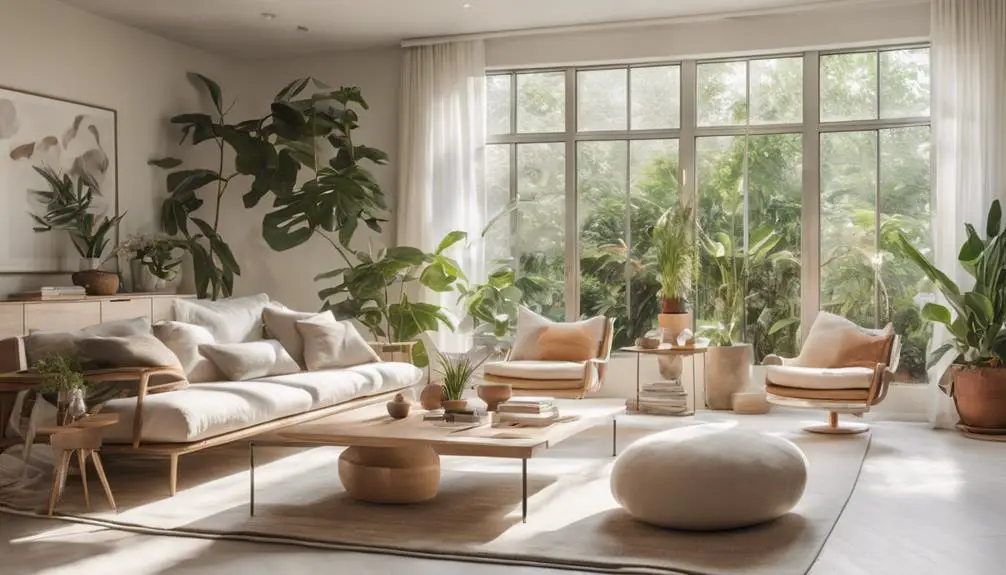
Feng Shui for Positive Energy at Home
Just as a balanced diet fuels your body, Feng Shui, the ancient Chinese art, nourishes your living space with positive energy. You've probably heard about it, but do you understand how it works?
How can the arrangement of furniture or the color of your walls influence your mood, your luck, and even your prosperity? Are there specific techniques you can apply to transform your home into a sanctuary of positive vibes?
Let's explore this fascinating concept together, and maybe you'll find the key to unlock a harmonious home that promotes wellbeing and prosperity.
Key Takeaways
- Feng Shui incorporates elements like Wood, Fire, Earth, Metal, and Water for energy harmony and wellbeing.
- Color and furniture placement are critical in Feng Shui to enhance positive energy and functionality of spaces.
- Each room possesses different potential for positive energy; bedrooms prefer calming colors, kitchens thrive with vibrancy.
- Balance between Yin (tranquility) and Yang (activity) energies is fundamental for maintaining harmony at home.
Understanding the Basics of Feng Shui
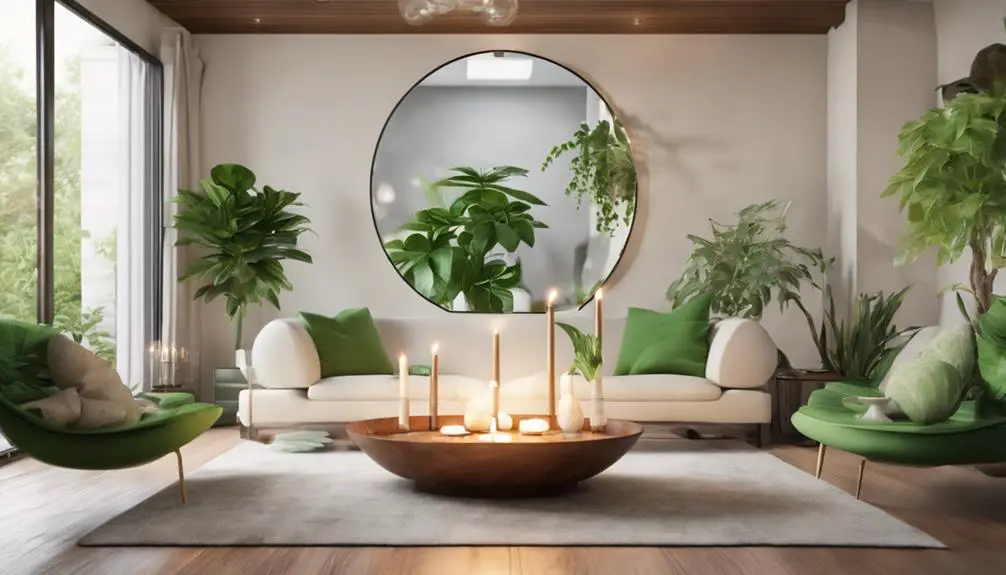
Before delving into specific Feng Shui practices for boosting positive energy in your home, it's essential to grasp the fundamental principles of this ancient Chinese art and science. Feng Shui history spans over 3,000 years, and it's deeply rooted in Chinese culture. It was initially used to orient buildings and spiritual structures, such as tombs, in a manner that harmonized with the energy flows of the universe, or 'chi'.
Feng Shui, which literally translates to 'Wind Water', is based on the Taoist vision that nature is alive and filled with energy. This principle, in turn, shapes the cultural significance of Feng Shui. In Chinese culture, it's believed that the arrangement and orientation of your space can significantly influence your life and wellbeing.
Moreover, Feng Shui has evolved from its primary geomantic tradition into a system that considers architecture, ecology, astronomy, and aesthetics. It's not just about where you place your furniture; it's about creating a harmonious environment that enhances your physical, mental, and spiritual health. By understanding these basic principles, you're taking the first step to transform your home into a sanctuary of positive energy.
Feng Shui Elements and Their Meanings

Diving into the heart of Feng Shui, it's crucial to understand the significance of its five core elements: Wood, Fire, Earth, Metal, and Water, each carrying a unique meaning and influence on the energy flow in your environment. These elements embody the essence of Feng Shui's cultural significance and serve as the framework for elemental symbolism in Feng Shui.
To add depth, let's examine a table illustrating each element, its representation, and its influence.
| Element | Representation | Influence |
|---|---|---|
| Wood | Growth, Vitality | Encourages personal growth and renewal |
| Fire | Passion, High Energy | Enhances enthusiasm, boldness |
| Earth | Stability, Groundedness | Promotes balance, steadiness |
| Metal | Logic, Intelligence | Inspires focus, clarity |
| Water | Wisdom, Insight | Fosters contemplation, wisdom |
Understanding these elements allows you to recognize the energy in your surroundings and how it impacts your life. By acknowledging the integral role of each element in influencing energy flow, you're taking a significant step in mastering Feng Shui. The journey to creating an environment filled with positive energy is deeply intertwined with understanding these elemental symbols and their meanings.
Positive Energy Placement Techniques
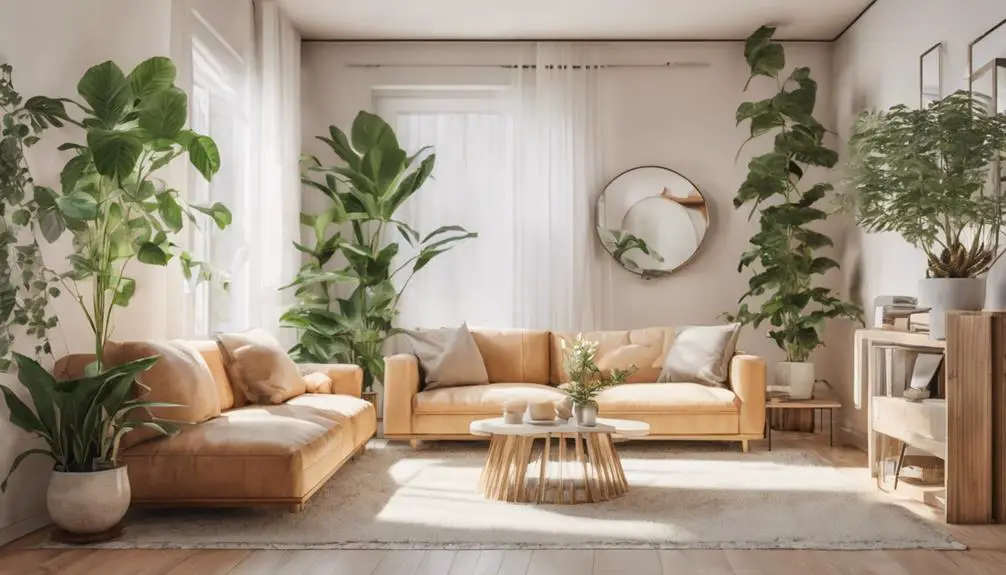
Having grasped the significance of Feng Shui's elemental symbols, you're now ready to explore some practical techniques for arranging your space to maximize positive energy flow.
Start by understanding the color significance in Feng Shui. Each hue represents different elements and attracts specific energies. For instance, green is linked to growth and health, making it perfect for spaces where you seek rejuvenation. Blue, on the other hand, fosters calmness and tranquility.
Your furniture placement also plays a vital role in the energy flow techniques. Avoid blocking pathways as it can obstruct the flow of Chi, the vital life force. Ensure there's a clear path for energy to flow freely.
In addition, pay attention to the positioning of mirrors. When placed correctly, mirrors can double the positive energy. However, avoid placing mirrors facing the main door or any negative views, as they can reflect and multiply the negative energy.
Lastly, consider the balance of the five elements. Too much or too little of one element can disrupt the harmony.
Incorporating Feng Shui in Different Rooms
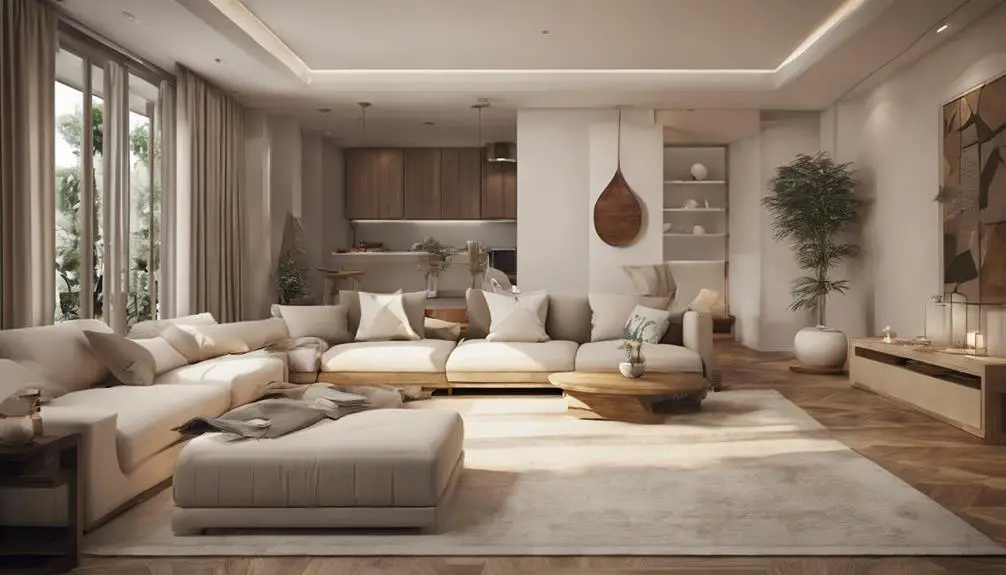
Every room in your home holds a unique potential for harnessing positive energy through the thoughtful implementation of Feng Shui principles. It's about more than just decor; it's a philosophy that can truly transform your living space.
Begin with understanding the color significance. In Feng Shui, every color has a unique vibration and energy. For instance, blue emits calmness and relaxation, making it perfect for bedrooms. Conversely, vibrant colors like red, representing power and passion, are ideal for active spaces like the kitchen or living room.
Equally important is furniture arrangement. The placement of your furniture can greatly affect the flow of energy. For example, your bed should be positioned far from the door but not directly in line with it, promoting better sleep. In the living room, ensure your furniture encourages conversation and interaction. Arrange seating in a circular or semi-circular pattern for a more harmonious atmosphere.
Maintaining Balance With Feng Shui
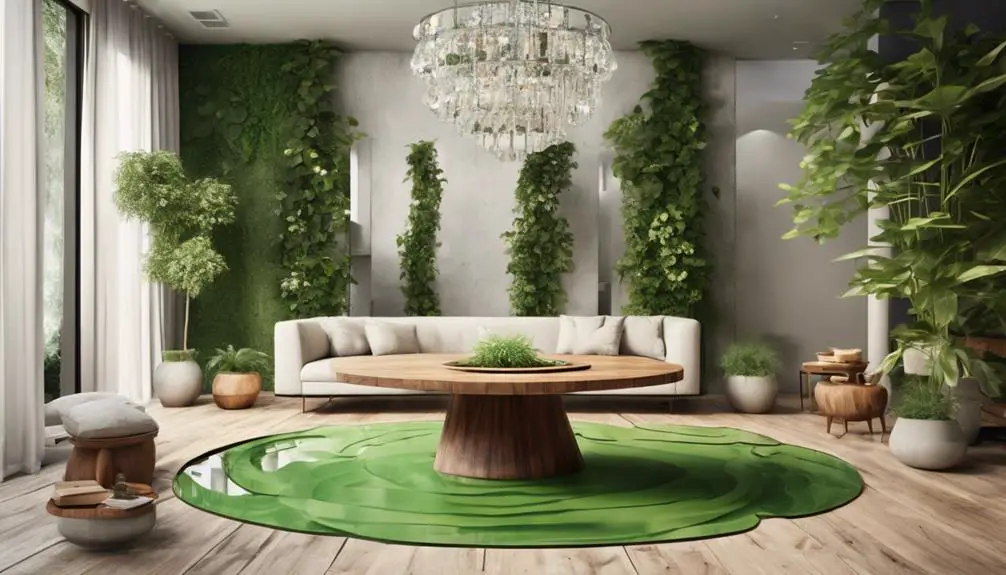
While it's essential to understand the role of colors and furniture arrangement in Feng Shui, maintaining balance is perhaps the most crucial aspect of this ancient practice. Balancing Yin and Yang, the complementary forces that represent different aspects of reality, is key. To create harmony within your home, you should strive for a balance between these energies.
Yin, the feminine energy, is associated with tranquility, reflection, and comfort. It's embodied by darker colors, soft textures, and round shapes. Yang, the masculine energy, stands for activity, stimulation, and strength. It's symbolized by bright colors, hard surfaces, and sharp angles.
Too much Yin can make a room feel lethargic, while an excess of Yang can lead to restlessness. It's your task to find the sweet spot between the two. You can balance Yin and Yang by carefully choosing colors, furniture, and decor that represent each force.
Harmonizing Life Forces, or Qi, is also vital. Keep the energy flowing freely by removing clutter, ensuring good natural light, and using mirrors wisely. It's all about creating a balanced, positive environment where you can thrive. By practicing these principles, you're not just decorating a home, you're creating a sanctuary of positivity and balance.
Frequently Asked Questions
How Does Feng Shui Influence Personal Relationships and Career Growth?"
Feng Shui symbolism can significantly influence your personal relationships and career growth. By arranging your space properly, you'll foster relationship harmony and encourage positive energy flow.
Specific items, such as crystals or plants, can attract love or promote career success. It's not just about aesthetics; it's about creating an environment that supports your ambitions and relationships.
Can Feng Shui Help Improve Physical and Mental Health?"
Absolutely, Feng Shui can boost both your physical and mental health. It's all about creating harmony in your surroundings.
For instance, Feng Shui in your kitchen can influence your dietary habits, aiding in physical health. Meanwhile, Bedroom Feng Shui can promote restful sleep, essential for mental well-being.
It's not just about aesthetics, but arranging your space to improve the flow of energy. So, you're not just rearranging furniture, you're enhancing your overall health.
Are There Any Common Mistakes to Avoid When Implementing Feng Shui at Home?"
You bet, there are common mistakes to avoid in Feng Shui.
One major blunder is misunderstanding Feng Shui misconceptions. It's not just about rearranging furniture.
Also, color significance in Feng Shui is often overlooked. Each color represents a specific element, and using the wrong color could disrupt balance.
How Can You Incorporate Feng Shui in Outdoor Spaces Like Gardens or Patios?"
To incorporate feng shui in your outdoor spaces like gardens or patios, you'll need to focus on plant placement and water features.
The right plant placement can balance energy flow. Put plants in corners to create a softening effect.
For water features, like fountains or ponds, position them in the north or east for prosperity and good health. Remember, water should always be clean and flowing to attract positive energy.
Is It Necessary to Hire a Professional Feng Shui Consultant to Bring Positive Energy Into the Home?"
It's not necessary to hire a professional feng shui consultant. You can bring positive energy into your home by understanding the basics of feng shui and selecting the right items.
Start by decluttering and maintaining cleanliness. Then, choose objects that align with feng shui principles like plants for growth, mirrors for reflection, and symbols of prosperity.
Conclusion
You've now got the knowledge to create a harmonious, positive energy-filled home using Feng Shui principles. Remember, it's all about balance – incorporating the five elements and placing items mindfully.
Each room holds unique opportunities for Feng Shui enhancement. Keep it simple, don't overthink it, and you'll start to feel the shift in your home's energy.
Embrace this ancient practice, and watch your space transform into a sanctuary of positivity and peace.

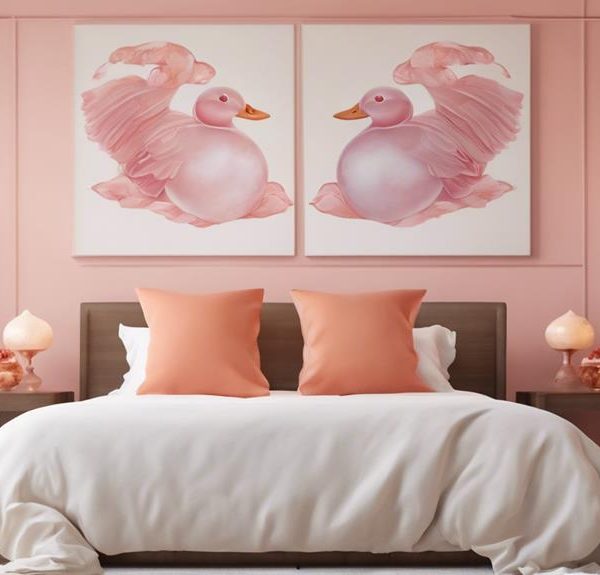
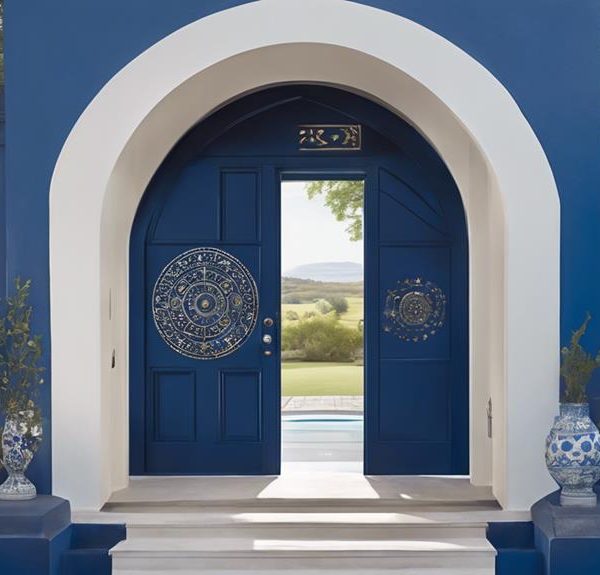
Sign up